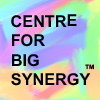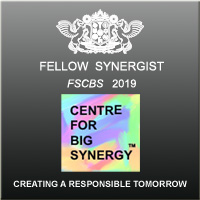
Many congratulations to all the 2019 Honorary Fellows of the Centre for Big Synergy
On 25th of October 2019, the first International Day for Synergy was celebrated by CBS to recognise the accomplishments of these outstanding synergists from across the world.
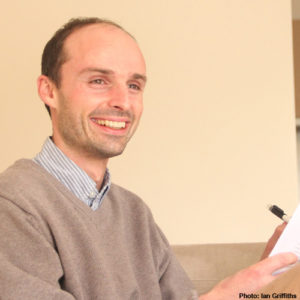
Prof. Ian Griffiths
University of Oxford
United Kingdom
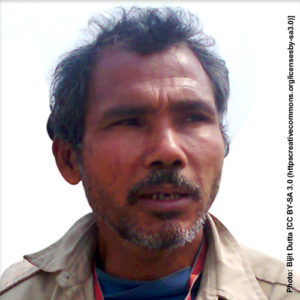
Jadav Payeng
Forest Man of India
India
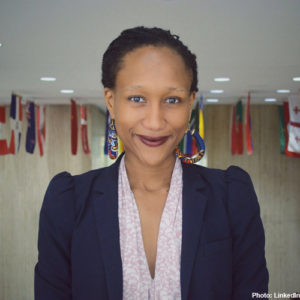
Nthabiseng Mosi
Co-founder and CFO, Easy Solar
Sierra Leone
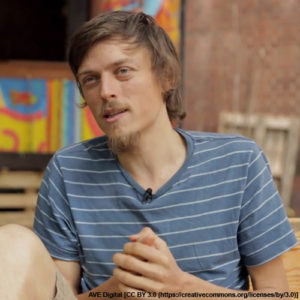
Raphael Fellmer
Co-founder and CEO, SIRPLUS
Germany
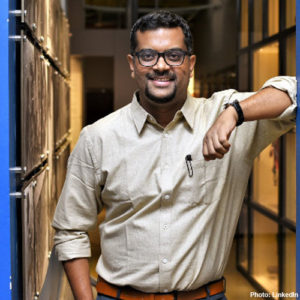
Abhishek Ray
Founder, Disability Research and Design Foundation
India
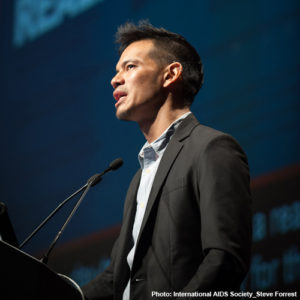
Laurindo Garcia
Founder and Chief Executive, Be Inclusive
Singapore
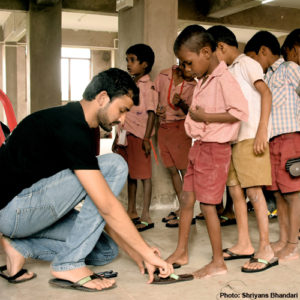
Shriyans Bhandari
Founder and CEO, Greensole
India
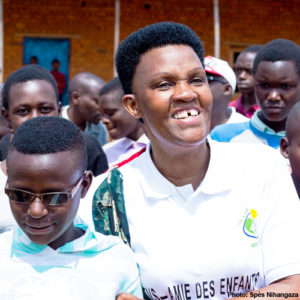
Spès Nihangaza
FVS-Amie des enfants "ABAGENZI B'ABANA"
Burundi
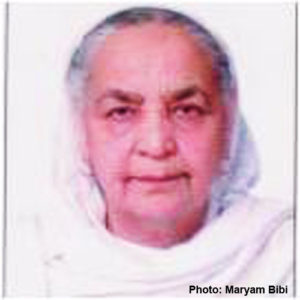
Maryam Bibi
Khwendo Kor
Pakistan
The tireless initiatives of these celebrated synergists have positively impacted hundreds and thousands of lives, and directly and indirectly have affected us and the planet. They are inspirations to millions; synergists of CBS as well as others who are following in their footsteps.
CBS is delighted to recognise the contributions of these stalwarts and is excited to find out more about their future accomplishments.
Spès Nihangaza (Burundi)
Spès Nihangaza set up FVS-amadeburundi in Burundi, the third poorest country in the world. She and her sister has been looking after children who had lost their parents to AIDS, alongside finding new homes for children orphaned during the civil war in the country. FVS is involved in multiple activities including running a boarding school, a centre for street children and clinics for them, as well as running a social insurance fund for poor families. About 1,700 solidarity groups have been created by FVS where villagers contribute money to be used for loans for starting up small businesses, for health care and school uniforms and school materials for children. Spès is sometimes called “Mother of 50,000 children” which in essence sums up the impact of her years of dedication to her cause!
Thanking CBS for the fellowship, she informed about her present initiatives as well. She said “The FVS-Amie des Enfants current initiative is the effective care of orphans and other vulnerable children (OVC). We have organized our communities in small village savings and loans associations which we called solidarity groups in our organization. This approach has helped the members of the groups to increase their economic income to assure the well being of the family and the children in particular. It has helped the poor members to, thanks to their work, to be able to help others. It has also guaranteed the education of many OVC in the community. We have introduced into the solidarity groups the OVC fund which we can not find in other organization’s solidarity groups. This fund is largely used for the purchase of school materials. It has been introduced into solidarity groups because we have noticed that the best investment that can be made for a child is to give him the means to study. It has helped 73.458 OVC to September 2019 to attend school and to have support from the solidarity groups ‘members.” She added “We have also introduced a health mutual that allows orphans and other vulnerable children in households to access health care. This health mutual has allowed to the poorest to access health care all year long.”
She emphasised on the power of collaboration and synergy that helped her achieve her goals. She said “I will mention, for example, the “Segal Family Foundation” which introduced us to work in working in networks, which often introduce the innovations of the world and help us apply them in our communities. Also, I want to mention the “Amade”, for initiating the community care of orphans and other vulnerable children and helped us in the construction of a school of reference that gives access to OVC to a better education. I will also mention Care International who introduced us to the VSLA system and allowed us to introduce the OVC fund.”
Find out more about Spès Nihangaza and see how you can support her mission.
Carolyn Laub (USA)
Carolyn Laub’s Gay-Straight Alliances (GSAs) Network is creating a safer middle- and high-school environment for lesbian, gay, bisexual, transgender, and questioning youth by helping young people to lead and teach each other how to organize effectively against the forces of homophobia and violence in their schools in the USA. Carolyn provides GSAs with concrete suggestions for activities, events, and campaigns as well as links lesbian, gay, bisexual, transgender, and questioning (LGBTQ) liberation with a larger social justice movement. Her fight for homophobia is changing the lives of hundreds and thousands of young people.
Find out more about Carolyn Laub and see how you can support her mission.
Ola Abualghaib (Palestine)
Dr. Ola Abualghaib was appointed Manager of the Technical Secretariat of the UN Partnership of Persons with Disabilities at UNDP in August 2019. Ola has over twenty years of experience working on gender and disability in development including in fragile and crisis affected settings in the Arab States, Africa and Asia. Previous to her appointment in UNDP she has been the Director for Global Influencing and Research at Leonard Cheshire Disability in London, UK. During the last 20 years she has worked with the UN system at global, regional and country level to support disability inclusive policies and programmes. She also served as the Vice Chair of the International Disability and Development Consortium (IDDC) and a board member of the Disability Rights Funds. Ola was recently featured in the Gender Equality Top 100 list of most influential people in global policy in 2019. She has a PhD on Social Protection from the University of East Anglia, UK.
Find out more about Ola Abú Al Ghaib and see how you can support her mission.
Alain Nteff (Cameroon)
Alain Nteff, the founder of GiftedMom, which uses innovative technologies and underemployed youths to improve maternal and infant health in Cameroon and across Africa, aims at increasing the rates of antenatal care attendance by 60% across Africa in the next 10 years. GiftedMom uses innovative and low-cost technologies to improve the healthcare of pregnant women and new-borns by notifying and following up pregnant women and mothers especially those in rural and disconnected areas via SMS, Web and Mobile applications. Local unemployed youths are trained and engaged as community workers and peer educators who get more women subscribed to the services. These young people receive a secure income, employment benefits and social protection in the process of saving thousands of lives in Cameroon and Across Africa. More than 30, 000 community workers are envisaged to be involved in its operations. GiftedMom has a hybrid model to achieve financial sustainability where GiftedMom Analytics (for-profit) signs premium contracts with international NGOs and governments to provide them with unique data and insights on maternal and infant health.
Find out more about Alain Nteff and see how you can support his mission.
Kamal Mouzawak (Lebanon)
Kamal Mouzawak, founded Souk el Tayeb, Lebanon’s first farmers’ market, that celebrates produce from small farmers and local producers, promoting sustainable agriculture and a thriving local economy. The project has stimulated the spirit of unity in a divided country using the power of food. Souk el-Tayeb has grown into a food movement throughout Lebanon, spreading as an educational program in local schools and as food festivals across the country to celebrate Lebanon’s culinary heritage. Kamal went on to start an array of social impact projects with international partners, as Dekenet Souk el Tayeb, a cooperative of Souk el-Tayeb’s farmers and producers selling exquisite selections of fine food where customers are rewarded with good quality food and a sustainable supply-demand chain have also been established for local producers. Other projects include, Souk@School, that employs educational games and school projects to teach Lebanese children (10-12 years) about healthy eating and well-being, whereas Farmers Exchange Program (FEP) facilitates international visits for small producers and farmers; and the Food & Feast regional festivals promotes Lebanese heritage amongst the changing socio-political environment.
Find out more about Kamal Mouzawak and see how you can support his mission.
G. V. Ramanjaneyulu (India)
The Centre for Sustainable Agriculture in India is headed by Dr. G. V. Ramanjaneyulu. The Centre is a professional resource organisation engaged in establishing models of sustainable agriculture. Dr. Ramanjaneyulu’s tireless efforts have led to the establishment of Community Managed Sustainable Agriculture in thousands of villages covering hundred and thousands of acres since 2004. He also coordinates the Open Source Seed Initiative in India. He was the one to set up the very first completely organic village, Yenabavi, in Warangal district of Andhra Pradesh in India. As a beacon of sustainability, self-help and responsible farming, his initiatives have improved the lives of hundreds and thousands of farmers especially in southern India. At the moment, his projects are being adopted nationwide in India.
Find out more about G. V. Ramanjaneyulu and see how you can support his mission.
Amani El Tunsi (Egypt)
Amani El Tunsi is empowering Egyptian women talk about taboo subjects and providing women with the tools and resources to make life changes. She is creating a safe space to talk for educated girls and women to discuss taboo subjects. Her initiative, Banat wa Bas, includes four components; (i) a website and radio station (ii) a rehabilitation centre (iii) a publishing house, and (iv) a program to prepare girls to enter the workforce in the media/communications sector. Also, Amani has created a powerful network of women who provide resources and opportunities to young women for them to make life-changing decisions. Her work has spread beyond Egypt to other Arab nations including Saudi Arabia, Kuwait, Jordan, Lebanon, Sudan, Libya, Tunisia, Morocco, and Algeria changing the lives of hundreds and thousands of women.
Find out more about Amani El Tunsi and see how you can support her mission.
Maryam Bibi (Pakistan)
Maryam Bibi founded ‘Khwendo Kor’(KK), meaning “Sisters’ Home,” focusing on the development of women, children, and strong families in the remote areas of the Northwest Frontier Province (NWFP) and the Federally Administered Tribal Areas of Pakistan (FATA). She has received multiple national and international nominations and awards including a nomination for the Nobel Peace Prize for the her work so far. Currently KK is running 47 Primary Schools and 11 Middle schools and 14 adult literacy centres. In partnership with the government, KK has delivered 48 vaccinations and has run 113 medical camps in remote areas of the region. The organisation has also empowered local women through micro-credit, training and technical support in animal husbandry, street vending, running village shops and vegetable production, as well as production of handmade Mazri Products which are not only sold in national markets but are also exported to the UK and Holland. Since 1993, Maryam Bibi’s tireless efforts have improved the lives of women, children and entire communities of hundreds and thousands of people in the remote areas of the Northwest Frontier Province and tribal areas of Pakistan.
Find out more about Maryam Bibi and see how you can support her mission.
Thomas Bayne (UK)
Thomas Bayne was made redundant from the waste management industry and went about to set up YouCAN Recycling. It is a local waste management social enterprise, creating social, environmental and economic impacts within the community by employing people with special needs who work with local councils, collecting cans, plastics and cardboards free of charge for a growing network of businesses. YouCan Recycling aims at creating paid employment opportunities for people with additional support needs for them to overcome social exclusion and help them feel part of the community. YouCan is already changing hundreds of lives, empowering communities and protecting the planet at the same time, and is expected to become the number one recycling provider in Scotland.
Find out more about Thomas Bayne and see how you can support his mission.
James Kofi Annan (Ghana)
Challenging Heights, an NGO in Ghana, was set up by James Kofi Annan to protect the rights of children and focus their anti-trafficking efforts in the fishing and cocoa industry to free child slaves. Challenging Heights has liberated more than 500 children from slavery and have provided rehabilitation and security to them. The NGO runs a school for 700 pupils, offers training and loans to poor mothers so that they can support their families and not have to sell their children into slavery. Through the NGO, James has supported over 10,000 children and is still supporting children who have been slaves or are at risk of slavery.
Find out more about James Kofi Annan and see how you can support his mission.
Stephen Dewar, Philip Watts and Frank Fish (USA and Cananda)
Through an ideal synergy of ideas, skills and resources US biologist Frank Fish, US/Canadian aeronautical engineer Philip Watts and Canadian filmmaker, inventor and entrepreneur, Stephen Dewar, developed a more powerful, energy-efficient and quieter rotating blade design for wind turbines and fans. This biomimetic turbine design based on the flippers of humpback whales can help wind farms produce up to 20% more power with less wind thus massively benefitting the worldwide green energy production.
Find out more about the innovation and how it can improve the lives of all of us.
Nnaemeka Ikegwuonu (Nigeria)
Amongst other award-winning initiatives that have improved the lives of thousands of people in rural Nigeria, Nnaemeka Ikegwuonu, also founded ‘Coldhubs‘, a “plug and play” modular, solar-powered walk-in cold room, for 24/7 off-grid storage and preservation of perishable foods. It prevents post-harvest losses in fruits, vegetables and other perishable food. Farmers pay a daily flat fee for each crate of food they store. It is expected to boost the annual income of farmers by up to a quarter, reduce post-harvest loss by 80%, increase employment of women who manages the hubs, and provides fresh and nutritious food to villagers.
Find out more about the Nnaemeka Ikegwuonu and see how you can support his mission.
Julien Noé (France)
Julien Noé founded Enercoop, the first energy production and consumption cooperative in France. Enercoop’s cooperatives are facilitating the flow of investment from thousands of French people to local entrepreneurs who are building solar, wind and biomass power production facilities. These entrepreneurs are also helped to gain access to the electricity distribution networks that have been controlled by monopolies for a very long time. Enercoop had a vision to expand into all 22 French regions and increase its local energy production hubs to improve access of affordable renewable energy across France.
Find out more about Julien Noé and see how you can support his mission.
Laurindo Garcia (Singapore)
Over the last 10 years Laurindo had the privilege of working towards greater inclusion of traditionally marginalised groups in Asia through a variety of perspectives: a community organiser, activist, a product designer and a social entrepreneur. Of his most recent accomplishments, he is most proud of three. Firstly in 2018, he built a mobile app that helps people across Southeast Asia find inclusive places – ranging from wheelchair accessible restaurants; child-friendly entertainment outlets; transgender-friendly doctors; and, more. Secondly, he built a registry of inclusive businesses in Singapore in 2019 to help jobseekers find inclusive employers. To date they have on-boarded Airbnb, Dell, HSBC, Johnson & Johnson and dozens of small-medium enterprises within 6 months. Finally, he ran a pledge drive asking employers in Singapore to join the fight against HIV discrimination in the workplace. Since beginning in January 2019, Salesforce, Barclays, Levi Strauss, GlaxoSmithKline and over 110 companies have signed.
Find out more about the Laurindo Garcia and see how you can support his mission.
Shriyans Bhandari and Ramesh Dhami (India)
India’s (Mumbai-based) athletes Shriyans Bhandari and Ramesh Dhami’s social enterprise, GreenSole, a company that refurbishes discarded shoes to comfortable footwear thereby creating an infrastructure, which enables everyone to have the basic necessity of a footwear, forever. Greensole has already provided footwear to over 1,10,000 people in need, across the villages of India and by 2020, expects to do the same for more than 10,00,000 people in need, nationwide.
Find out more about Shriyans Bhandari and Ramesh Dhami and and see how you can support their mission.
Nthabiseng Mosia (Sierra Leone)
Nthabiseng Mosia founded Easy Solar in Sierra Leone to make energy, life-transforming products, and financial services, affordable and accessible to everyone in West Africa. Easy Solar offers affordable solar energy to those that are off-the-grid by offering solar powered devices on a “rent-to-own” financing structure, via a Pay-As-You-Go technology and mobile money platform. Easy Solar has changed hundreds and thousands of lives with over 100,000 people connected with electricity, generating over $2 Million in savings for the families and having created over 150 jobs in the region.
Find out more about the Nthabiseng Mosia and see how you can support her mission.
Raphael Fellmer (Germany)
Globally, 1.3 billion tons of food is wasted or lost every year which accounts for about a third of all that is produced and contributes to 3.3 billion tons of carbon dioxide to global emissions with an approximate loss of US$ 680 billion in industrialized countries and US$ 310 billion in developing countries. However, an estimated 40% of all that food wasted in production, handling, processing and distribution is still edible, if a smart supply chain could be in place! Raphael Fellmer, an activist, went on money strike for 5 years to raise awareness of the responsibility we bear for hunger, injustice and environmental destruction. He founded the Social Impact startup SirPlus, a food saviour market in Germany to save food that is lost in the supply chain, with plans of opening 35 more rescuer markets over the next 5 years. The concept creates a digital marketplace for surplus food that connects all players along the value chain including not so perfect but edible fruit & vegetables and other non-perfect ones. The market sells food at a fraction of the original price making food more available and affordable for all, bringing food that would be wasted back into the cycle. The aim is to save 1,000,000 tons of food in 30 countries within the next 5 years.
Find out more about the Raphael Fellmer and see how you can support his mission.
Camilo Jimenez (Colombia)
Camilo Jimenez founded ECOPUNTOS that has ‘gamified’ recycling to involve more people in the process and get rewards and prizes, in exchange for recycled materials. ECOPUNTOS stands, automatically detect the material and the quantity of items recycled to offer people with cumulative credits and a measurement of how much CO2 has been reduced. This information is shared on social media to further encourage people to recycle. Starting with Colombia, ECOPUNTOS has spread to more 7 countries in Latin America with 1.2 million registered users and 16 sponsors. ECOPUNTOS is expected to spread all over Latin America in due course, change the recycling industries, and enhance global sustainability and local economy.
Find out more about the Camilo Jimenez and see how you can support his mission.
Abhishek Ray (India)
Abhishek Ray set up the Disability Research and Design Foundation (DRDF) in India which works with commercial developers, policymakers, the design fraternity, as well as citizen organizations to popularise the concept of design-for-all. DRDF is a successful platform where engineers, designers, activists and medical professionals can work collaboratively towards bringing about social change. With a reclassification of ‘disability’ to include conditions due to chronic health problems as arthritis, heart disease, back pain. etc., by the World Health Organisation, more people have been identified to be in need of accessibility than otherwise. His efforts have led to major changes in the design of public buildings, malls, cinemas, public toilets, offices and other commercial real-estates to make them ‘accessible’ to people with disabilities, across India. His efforts have produced instructional manuals, code of practice as well as new educational modules to incorporate new ideas around design for accessibility across all areas of daily life. He has even made short films to promote the idea nationwide and around the developing world in particular. His actions have improved the lives of hundreds and thousands of disabled people alongside improving the profile and commercial potential of public buildings and offices.
Find out more about the Abhishek Ray and see how you can support his mission.
Marissa Begonia (UK)
Marissa Begonia founded The Voice of Domestic Workers, an education and campaigning charity calling for justice and rights for Britain’s sixteen thousand overseas domestic workers. It prepares individuals to stand up and voice their opposition to any discrimination, inequality, slavery and all forms of abuse. The charity provides education, English language lessons, drama and art classes, and employment advice to domestic workers in the UK. It also rescues domestic workers from abusive employers. Marissa had led by example, courage and determination. She herself had been a domestic help in Singapore, then Hong Kong and eventually London. She faced different kinds of abuse including financial and sexual harassment but eventually found a family who treated her well. Through her work, Marissa is impacting the lives of thousands of domestic workers in the UK.
Find out more about the Marissa Begonia and see how you can support her mission.
Sebastião Salgado and Lélia Deluiz Wanick Salgado (Brazil)
This husband a wife duo from Brazil have reforested an entire forest in the last 20 years planting over 2 million trees and restoring the ecosystem in the region back to its original state so much so that 172 bird species, 33 species of mammals, 293 species of plants, 15 species of reptiles and 15 species of amphibians now reside in it. The couple founded Instituto Terra, that has planted 4 million saplings in the last 20 years and has brought the forest back from the dead. The project has demonstrated how with positive ecological action the environment can quickly recover.
Find out more about the couple and see how you can support their mission.
Jadav Payeng (India)
Jadav “Molai” Payeng from Jorhat, Assam, India, is popularly known as the ‘Forest Man of India’ for how over the last several decades, he converted a sandbar of the Brahmaputra river into a forest with an area of about 1,360 acres / 550 hectares. The forest homes Bengal tigers, Indian rhinoceros, and over 100 deer and rabbits. Elephants too stay there for 6 months of the year and have given birth to calves! Through his selfless initiatives he has set a global example of how much each and every conscious individual can do to protect and restore our immediate environment.
Find out more about the Jadav Payeng and see how you can support their mission.
Gunhild Stordalen (Norway)
Gunhild Stordalen is a Norwegian physician, environmental advocate and co-founder of EAT foundation, working on the forefront of climate change and public health debates with a strong focus to transform the global food system to ensure that the growing world population can get a healthy and nutritious diet with least environmental impacts. This synergistic collaboration between the Wellcome Trust, the Stordalen Foundation and Stockholm Resilience Centre aims to understand how health, science, policy and sustainability can work together to find a balance between our food, our environment and our health which can eventually equip us to face the socio-economic and environmental challenges we face in the coming years.
Find out more about the Gunhild Stordalen and see how you can support her mission.
Ian Griffiths, Raka Mondal, Sirshendu De, Sourav Mondal and Krishnasri Venkata (UK and India)
Mathematicians Dr Ian Griffiths (Oxford University), Dr Raka Mondal (Mathematical Institute), and Engineers Professor Sirshendu De, Dr Sourav Mondal, Miss Krishnasri Venkata (Indian Institute of Technology, Kharagpur) have developed a mathematical framework that converts a simple arsenic filter into a smart, predictive and cost-effective arsenic filtering technology that can alleviate arsenic poisoning on a major scale. Mass arsenic poisoning affects over 200 million people in 70 countries, causing cancer, skin lesions, cardiovascular disease, diabetes, depleting cognitive development with deaths in young adults. The project symbolises the synergistic exchange and implementation of knowledge between different disciplines to achieve a major life-saving technological solution.
Dr. Griffiths is continuing to work with the collaborators, Professor Sirshendu De, Dr Sourav Mondal and Dr Lucy Auton as they now seek to derive mathematical models to understand how fluoride may be removed from contaminated water using mineral rich carbon.
Find out more about the team and the impact of their discovery.
